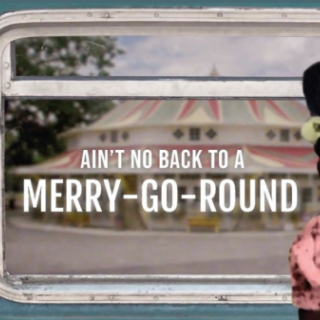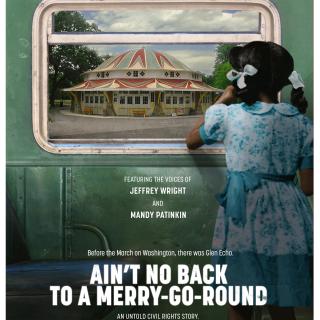Advertisement
At a pivotal point in Saving Mr. Banks, Walt Disney (Tom Hanks) explains that the purpose of storytelling is to supply the happy endings that real life often denies us.
Of course, you can’t say that about all storytelling. The Coen brothers, for instance, revel in stories in which happiness is a rare commodity. Inside Llewyn Davis is but the latest example.
Other filmmakers may leave their characters happy, but they don’t necessarily leave their viewers happy. In American Hustle, director David O. Russell supplies a denouement that can be celebrated only if you share his peculiar conception of right and wrong.
But the average Disney film leaves everyone happy. Saving Mr. Banks—a Disney film about the making of another Disney film, 1964’s classic Mary Poppins—stays true to form. That helps to explain why, while it may not be the best film opening this pre-holiday weekend, it may well leave the most people the most satisfied.
To find out whether you’re “most people,” read on:
Inside Llewyn Davis
When we first meet folk singer Llewyn Davis (Oscar Isaac), he’s holding forth in a Greenwich Village club in 1961. His voice is rich and mournful, and the smoke-filled room is filled with rapt listeners.
After his set, he’s told that someone wants to talk to him out in the alley. He goes out to greet the stranger and is promptly beaten to a pulp.
Though it’s quite a while before we discover what’s behind the attack, it doesn’t take long to realize that Llewyn often rubs people the wrong way. He’s the kind of self-centered user who’s apt to accept a paying gig with a fellow musician (Justin Timberlake) after bedding the musician’s wife (Carey Mulligan).
In fact, the only selfless thing we ever see Llewyn do occurs when he accidentally allows an older couple’s cat to escape and then spends several days hauling the feline around while he tries to reunite them.
Why is Llewyn the way he is? Is he simply too much in love with his own talent—and too disappointed by his lack of success—to notice that other people have needs and problems, too? Or is he still recovering from the recent suicide of his former duo-mate?
Writers/directors Ethan and Joel Coen offer few clues, simply dragging us along as the shivering Llewyn wanders through a wintry landscape and suffers one setback after another.
Is there a point to all this? Maybe, or maybe not, but the Coens’ witty dialogue, moody photography and on-target cast make sure we’re entertained and impressed throughout. We’re particularly entertained when the effortlessly funny John Goodman appears as a drugged-up jazz musician and treats Llewyn with the same disdain that Llewyn shows the rest of the world.
Though the bulk of the film never reaches this level of hilarity, droll humor helps to leaven the Coens’ elegant portrait of a musician’s miserable life.
Rating: 4 stars (out of 5)
American Hustle
Like Saving Mr. Banks, American Hustle is based on reality. Unlike the Disney film, it doesn’t pretend that reality is anything more than a jumping-off point.
Co-written and directed by David O. Russell (Silver Linings Playbook), it turns an historic FBI sting into an excuse to submerge a group of talented actors in outlandish 1970s attire and even more outlandish personalities.
Christian Bale is Irving Rosenfeld, a con man with a prominent belly and a ludicrously elaborate comb-over. Amy Adams is Sydney Prosser, who becomes his lover and, simultaneously, his partner in crime. Their chief ruse is to convince desperate people to pay them for the chance to borrow money that never quite materializes.
Irving and Sydney’s luck appears to run out when FBI agent Richie DiMasso (Bradley Cooper) catches them in a sting. However, the agent offers to let them off if they help him land bigger fish.
As the operation goes on, those fish keep getting bigger and nastier, scaring the cautious Irving but supplying Richie with the danger and excitement that his life has so far lacked. Meanwhile, jealousy reigns as the two men vie for the seductive Sydney’s favor.
Along for the ride (and, perhaps, a shot at another Oscar) is Jennifer Lawrence as Irving’s glamorous but neurotic wife. Also on board are Louis C.K. as Richie’s supervisor, Jeremy Renner as a pompadoured politician and Robert De Niro as a notorious crime boss.
Of all the spot-on performances, Lawrence’s is the flashiest, but Bale’s is the most surprising. You just don’t expect to see a former Batman play a balding, overweight guy with a heart condition. It’s a treat, but so is the rest of this almost campily retro comedy.
It all ends in a way that satisfies our need for closure more than our desire for justice. But after being this entertained for more than two hours, you’ll probably consider that a fair tradeoff.
Rating: 4 stars (out of 5)
Saving Mr. Banks
Few people who enjoyed Mary Poppins as children knew how close the Disney musical came to never being made. As Saving Mr. Banks reveals, the author of the source material was nervous about what the creator of Mickey Mouse would do to her beloved nanny.
Directed by John Lee Hancock (The Blind Side), the film stars Emma Thompson as P.L. Travers, a London-based author who has spent the last 20 years rebuffing the Disney studio’s advances. A dwindling bank account finally convinces her to travel to Los Angeles and discuss a possible film, but she remains dubious.
“I hope we crash,” she mutters as her trans-Atlantic flight takes off.
Enter Walt Disney (Tom Hanks), who tells Travers he’s determined to film the tale to fulfill a long-ago promise he made to his daughters. Unmoved, Travers agrees to talk with his creative team, but she still refuses to sign over the rights.
Interspersed with scenes from Travers’s L.A. sojourn are flashbacks to her childhood in Australia, where her younger self (Annie Rose Buckley) was mesmerized by her charming but irresponsible and alcoholic father (Colin Farrell). As the memories from down under become increasingly painful, we begin to grasp the source of Travers’s defensiveness.
Due to no fault of the great Thompson, Travers at first comes off as a stereotypically stiff Brit, but she eventually develops into a full-fledged woman. Similarly, the film itself matures from a rather broad comedy to a searing drama, leading up to a moving speech in which Hanks’s Disney makes the case for happy endings.
Given that we already know how the story comes out—Mary Poppins did get made, after all—the film is surprisingly engaging. It could be argued that it got that way by manipulating emotions and taking liberties with historical accuracy, but after listening to Hanks’s speech, you may wonder whether it matters.
Rating: 3½ stars (out of 5)



